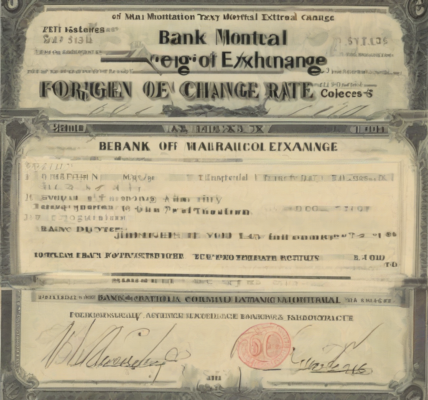Navigating the US Crypto Exchange Landscape: A Comprehensive Guide
The United States boasts a vibrant and rapidly evolving cryptocurrency exchange market. Understanding this landscape is crucial for both seasoned investors and newcomers looking to participate in the digital asset world. This guide provides a comprehensive overview, exploring key aspects of US crypto exchanges, including their regulation, functionalities, security measures, and the diverse offerings available.
Regulatory Landscape of US Crypto Exchanges
The regulatory environment for crypto exchanges in the US is complex and still developing. Unlike traditional financial markets, which are heavily regulated by bodies like the Securities and Exchange Commission (SEC) and the Commodity Futures Trading Commission (CFTC), the cryptocurrency space faces a patchwork of regulations at the federal and state levels. This leads to uncertainty and ongoing debate regarding the classification of various cryptocurrencies (as securities, commodities, or neither).
- SEC’s Role: The SEC primarily focuses on regulating securities, and many cryptocurrencies are considered securities under their purview. This means exchanges listing these assets must comply with SEC regulations, including registration requirements and anti-fraud provisions.
- CFTC’s Role: The CFTC regulates commodities and derivatives, and some cryptocurrencies are considered commodities. Exchanges offering derivatives like Bitcoin futures must adhere to CFTC regulations.
- State-Level Regulations: Individual states also have varying regulations impacting crypto exchanges, further complicating the landscape. Some states have implemented licensing requirements or specific rules regarding cryptocurrency operations within their jurisdictions.
- The Ongoing Debate: The debate over how to effectively regulate cryptocurrencies is ongoing. The lack of clear, unified federal regulations creates challenges for exchanges in ensuring consistent compliance across different jurisdictions.
Key Features and Functionalities of US Crypto Exchanges
US-based crypto exchanges offer a range of features and functionalities catering to different investor profiles. Understanding these features is crucial for selecting the right platform.
- Trading Pairs: The variety of cryptocurrency pairs available for trading is a key consideration. Some exchanges offer a wide selection of altcoins alongside major cryptocurrencies like Bitcoin and Ethereum, while others focus on a smaller set.
- Trading Fees: Transaction fees vary considerably across different exchanges. These fees can impact profitability, and understanding the fee structure is essential for cost-effective trading.
- Order Types: Different exchanges support various order types, such as market orders, limit orders, stop-loss orders, and more. Access to advanced order types can be crucial for sophisticated trading strategies.
- Security Measures: Security features are paramount. Reputable exchanges implement robust security protocols, including two-factor authentication (2FA), cold storage for a significant portion of their assets, and advanced encryption technologies.
- User Interface (UI) and User Experience (UX): The platform’s ease of use plays a vital role. A user-friendly interface with intuitive navigation and helpful resources can significantly enhance the trading experience, particularly for beginners.
- Customer Support: Reliable and responsive customer support is crucial for addressing any issues or questions that may arise. The availability of multiple support channels (e.g., email, phone, live chat) can be a significant advantage.
- KYC/AML Compliance: Know Your Customer (KYC) and Anti-Money Laundering (AML) compliance procedures are essential for preventing illicit activities. Reputable exchanges adhere to stringent KYC/AML regulations.
- Fiat On- and Off-Ramp Options: The ability to easily deposit and withdraw fiat currencies (USD, EUR, etc.) is a crucial factor for many users. Convenient fiat gateways streamline the process of entering and exiting the cryptocurrency market.
- Staking and Lending: Some exchanges offer staking and lending services, allowing users to earn passive income on their cryptocurrency holdings. These services vary in terms of interest rates, supported cryptocurrencies, and risk levels.
Types of US Crypto Exchanges
The US crypto exchange market encompasses various types of platforms, each catering to different needs and preferences.
- Centralized Exchanges (CEXs): These are traditional exchanges that hold users’ funds on their behalf. They generally offer a wider range of cryptocurrencies and trading features but carry the risk associated with centralized custodianship.
- Decentralized Exchanges (DEXs): DEXs operate without a central authority, utilizing blockchain technology for peer-to-peer trading. They offer greater user control and privacy but often have lower liquidity and a more complex user interface.
- Custodial vs. Non-Custodial Exchanges: Custodial exchanges manage users’ funds, while non-custodial exchanges provide tools and infrastructure for users to manage their own private keys.
Security Considerations for US Crypto Exchanges
Security is paramount when choosing a crypto exchange. Users should prioritize exchanges that:
- Utilize Cold Storage: A significant portion of assets should be stored offline (cold storage) to reduce vulnerability to hacking.
- Implement Two-Factor Authentication (2FA): 2FA adds an extra layer of security, making it harder for unauthorized individuals to access accounts.
- Employ Advanced Encryption: Robust encryption protocols are crucial to protect user data and funds.
- Regular Security Audits: Reputable exchanges regularly conduct security audits to identify and address potential vulnerabilities.
- Insurance Coverage: Some exchanges offer insurance coverage to protect users’ funds in case of security breaches.
- Transparent Security Practices: Exchanges should be transparent about their security practices and readily disclose relevant information.
Factors to Consider When Choosing a US Crypto Exchange
Selecting the right exchange requires careful consideration of several factors:
- Reputation and Track Record: Research the exchange’s reputation and look for evidence of a strong track record of security and regulatory compliance.
- Fees and Pricing: Compare transaction fees, withdrawal fees, and other charges across different exchanges to find the most cost-effective option.
- Available Cryptocurrencies: Ensure the exchange lists the cryptocurrencies you’re interested in trading.
- User Interface and Experience: Choose an exchange with a user-friendly interface that meets your technical expertise.
- Security Measures: Prioritize exchanges with robust security protocols and a commitment to user safety.
- Customer Support: Assess the quality and responsiveness of the customer support team.
- Regulatory Compliance: Verify that the exchange is compliant with relevant regulations and adheres to KYC/AML procedures.
- Liquidity: Consider the exchange’s trading volume and liquidity, as this impacts the ease and speed of executing trades.
Emerging Trends in the US Crypto Exchange Market
The US crypto exchange market is constantly evolving. Some of the emerging trends include:
- Increased Regulatory Scrutiny: Expect heightened regulatory oversight and stricter compliance requirements in the coming years.
- Growing Adoption of Decentralized Exchanges (DEXs): DEXs are gaining popularity due to their decentralized nature and enhanced user control.
- Integration of Traditional Finance (TradFi): Bridging the gap between TradFi and DeFi is a significant trend, with more exchanges offering services that integrate both worlds.
- Advancements in Security Technologies: Ongoing advancements in blockchain technology and cybersecurity will continue to enhance the security of crypto exchanges.
- Expansion of Institutional Participation: More institutional investors are entering the cryptocurrency market, leading to increased liquidity and trading volume on exchanges.
Conclusion (Not included as per instructions)



